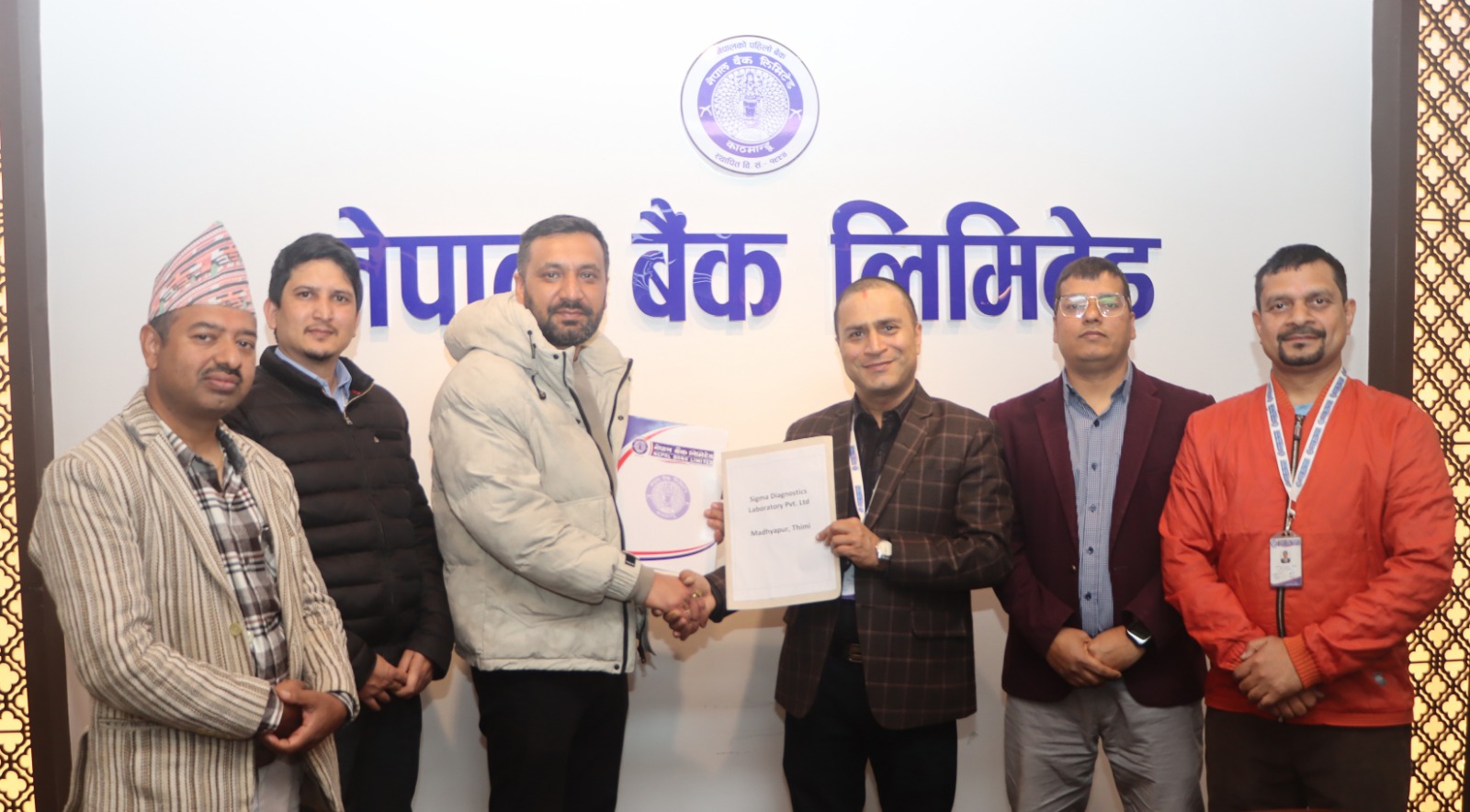Nepali Youths Learn the Art of Making Nepali Traditional Herbal Incense
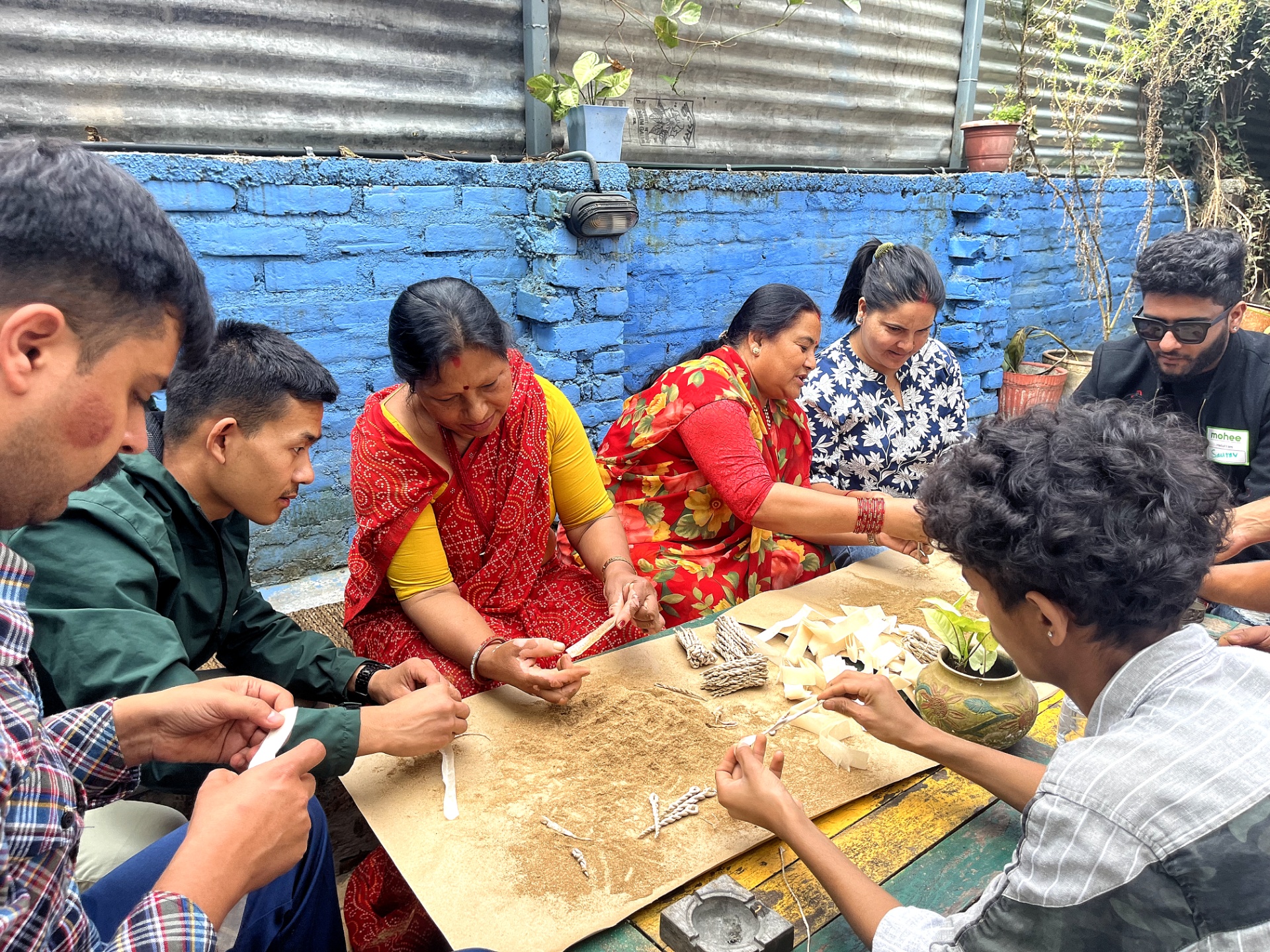
Patan, Nepal October 26 : Nepal’s growing reliance on imported incense has raised health and economic concerns, with over 3,100 tonnes of agarbatti products imported in 2023 at a cost of 21 crore Nepali rupees. Many of these products contain synthetic chemicals and petroleum derivatives, known to pose significant health risks, including links to cancer. Traditional Nepali incense, known as “Baateko Dhoop,” offers a safer alternative. Made from natural herbs and woods from Nepal’s high-altitude regions, Baateko Dhoop is free of harmful additives and even promotes health benefits through the inhalation of herbal smoke.
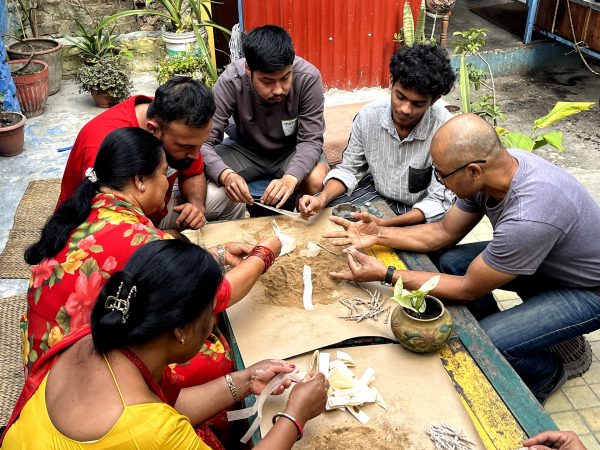
To revive this sustainable tradition, MOHEE, a group of like minded youths dedicated to preserving Nepal’s cultural heritage, partnered with Chiyawala tea house to host a workshop called “Learn with Aama” on Saturday. Held at Bakhundole, the workshop invited Kathmandu’s youth to learn the craft of Baateko Dhoop making directly from elder women, or “aama” (Nepali word for mother). These Aama passed down their knowledge, helping bridge the gap between generations.
“We should never forget our roots,” said Anil Ranjit, MOHEE’s lead. “Our cultural practices are the most sustainable legacy we have. They represent our identity, and we should actively promote them.”
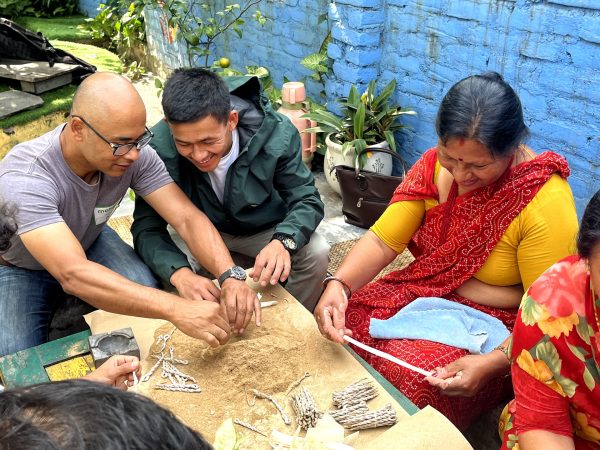
MOHEE has been organizing similar events regularly to support Nepal’s traditions. “Just last month, we held a workshop on making Duna Tapari, which are organic leaf plates,” said MOHEE representative Srijan Thapa, underscoring the group’s dedication to reviving sustainable and locally sourced practices.
One of the workshop’s speakers, MOHEE member Simon Paudel, elaborated on the medicinal value of traditional incense. Drawing from ancient Hindu Vedic practices, Paudel explained that herbal smoke was historically used as a natural remedy. “In the Vedic period, if someone couldn’t take medicine orally, herbs would be burned, and the smoke would be inhaled as a form of treatment,” he said. “This smoke, carrying the beneficial properties of the herbs, helped balance the body’s physiological functions and had a therapeutic effect. Similarly, when Baateko Dhoop is used in moderation today, it can support well-being.”
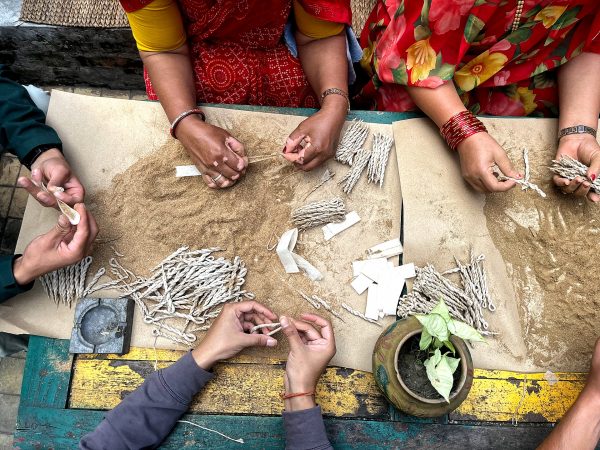
“Instead of importing synthetic products, we should be supporting our natural products and even exploring export opportunities. By replacing imports with our own products, we will be promoting our heritage while also strengthening Nepal’s economy.” Ranjit added.
Facebook Comment
latest Video
Trending News
- This Week
- This Month





